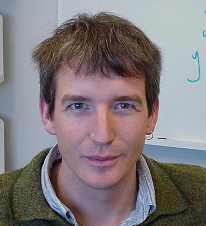Difference between revisions of "Michael Meylan"
m |
|||
| Line 21: | Line 21: | ||
ignored by later researchers. His Phd thesis probably had a much greater influence on | ignored by later researchers. His Phd thesis probably had a much greater influence on | ||
the researchers who followed at Otago and it is continuing to appear in journal citations. | the researchers who followed at Otago and it is continuing to appear in journal citations. | ||
| − | The solution method using a Green function | + | The solution method using a Green function coupled with a Green function for the plate |
| + | (the later Green function does not extend to three dimensions because of the much | ||
| + | more complicated boundary conditions which exist). The solution method has been | ||
| + | superseeded by more efficient methods, most notably the [[Wiener-Hopf]] method developed | ||
| + | by Tim Williams and the eigenfunction matching method (which applied to | ||
| + | multiple plates) developed by | ||
| + | [[Kohout_Meylan_Sakai_Hanai_Leman_Brossard_2006a | Kohout et. al. 2006]]. | ||
Mike then extended the two-dimensional solution to a three-dimensional circular elastic plate. | Mike then extended the two-dimensional solution to a three-dimensional circular elastic plate. | ||
This solution again used a Green function method coupled with the eigenfunctions for a circular | This solution again used a Green function method coupled with the eigenfunctions for a circular | ||
| − | plate (which can be computed in exact form | + | plate (which can be computed in exact form, at least up to solving an equation involving |
| + | Bessel functions. | ||
= Publications = | = Publications = | ||
Revision as of 04:33, 5 May 2006
Micheal Meylan is a lecturer at the University of Auckland. He complete his Ph.D. under Vernon Squire in 1993 which was concerned with modelling ice floes using linear wave theory.
He has worked on various problem connected with linear wave theory in the subsequent time. The idea for a website devoted to water waves was his idea.
Research
Mike's Phd thesis concerned a two-dimensional floating elastic plate which was solved using a Green function method. The motivation for the solution was to model ice floe and at the time he was ignorant of the engineering applications (e.g. VLFS). Mike independently derived the Green function which was well known in water waves and goes back to John 1950. The derivation method was copied by Squire and Dixon 2000 (based on a close reading of his Phd thesis) for the case, not of a free surface, but for a free surface covered by a plate The results of this research were publised in the Journal of Geophysical Research were largely ignored by later researchers. His Phd thesis probably had a much greater influence on the researchers who followed at Otago and it is continuing to appear in journal citations. The solution method using a Green function coupled with a Green function for the plate (the later Green function does not extend to three dimensions because of the much more complicated boundary conditions which exist). The solution method has been superseeded by more efficient methods, most notably the Wiener-Hopf method developed by Tim Williams and the eigenfunction matching method (which applied to multiple plates) developed by Kohout et. al. 2006.
Mike then extended the two-dimensional solution to a three-dimensional circular elastic plate. This solution again used a Green function method coupled with the eigenfunctions for a circular plate (which can be computed in exact form, at least up to solving an equation involving Bessel functions.
